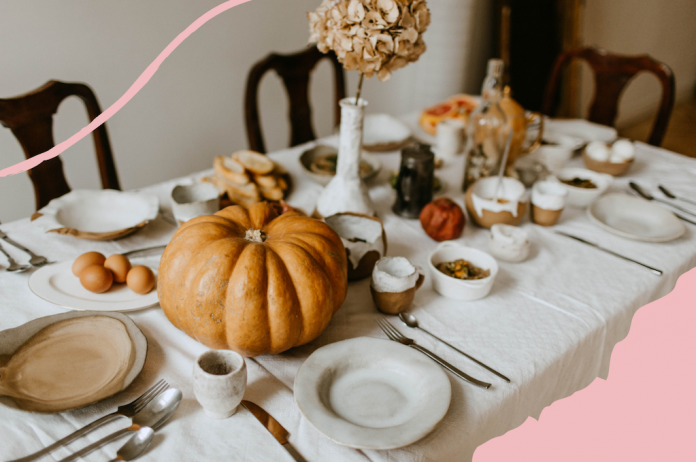Curling up with a warm cup of tea of an evening is a bedtime ritual many of us cherish. Beyond the comfort of the routine itself, certain so-called ‘sleepy teas’ promise to help us drift off into a peaceful slumber. But do these bedtime brews actually deliver on their drowsy promises, or are we simply being lulled by clever marketing?
In a world where sleep quality seems increasingly elusive (though not actually a modern phenomenon, and even potentially an evolutionary tool), it’s no wonder that sales of sleep-promoting teas have surged in recent years.
Visit any supermarket or health food shop and you’ll find entire shelves dedicated to herbal concoctions with names like ‘Night-time Blend’, ‘Sweet Dreams’, or ‘Sleepytime’, and soothing hues of purple and putty.
These products, often adorned with images of crescent moons and drowsy bears, have become a multimillion-pound industry. But as we reach for these soothing solutions, it’s worth examining what’s actually in our mug and whether science supports the claims printed on those beautifully designed boxes.
The Popular Players in Sleepy Tea
Most sleep-promoting teas contain a combination of herbs traditionally used for their calming properties:
- Chamomile: Perhaps the most famous sleep-inducing herb, with a gentle, apple-like flavour
- Valerian root: Known for its earthy (some might say pungent) aroma and sedative effects
- Lavender: Beloved for its soothing fragrance and anxiety-reducing properties
- Passionflower: A traditional remedy for restlessness and mild anxiety
- Lemon balm: A member of the mint family with calming effects
- Magnolia bark: Used in traditional Chinese medicine for sleep support
Read: 5 herbal teas to drink when facing the menopause
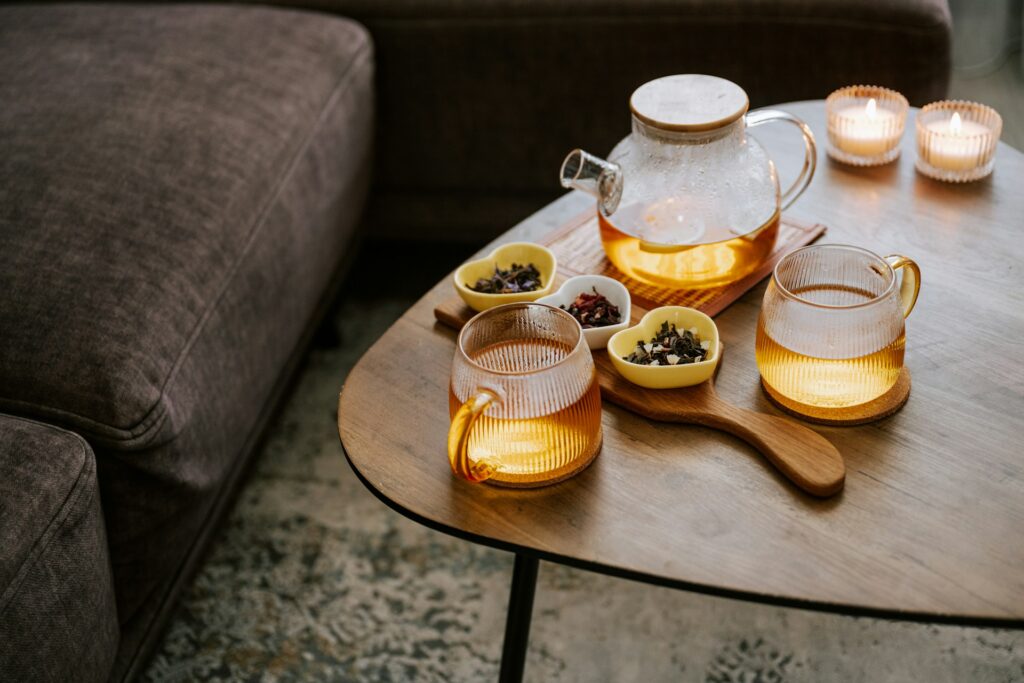
What Does The Science Say?
The evidence behind these herbal remedies varies considerably:
Chamomile contains apigenin, a compound that binds to benzodiazepine receptors in the brain, potentially producing mild sedative effects. Studies show mixed results, with some suggesting modest improvements in sleep quality rather than dramatically shortened time to fall asleep.
Valerian root has the strongest scientific backing among sleepy tea ingredients. It appears to increase levels of GABA (gamma-aminobutyric acid), a neurotransmitter that inhibits brain activity. Several clinical trials suggest it may help people fall asleep faster and improve sleep quality, though results aren’t unanimous.
Lavender shows promising results particularly for anxiety reduction, which can facilitate sleep. Its effects may be more pronounced through aromatherapy than ingestion, however.
Passionflower is one of the key ingredients in the sleepy teas from Cydno, a favourite in the IDEAL late night office. It has demonstrated modest sedative effects in some studies.
Lemon balm has shown potential for reducing stress and promoting relaxation.
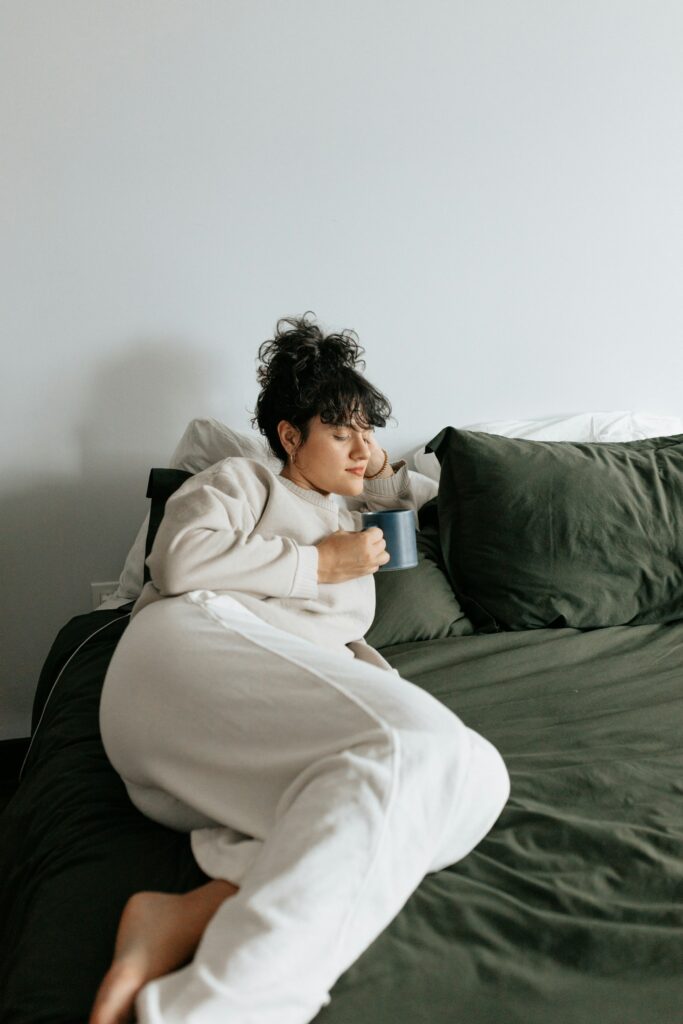
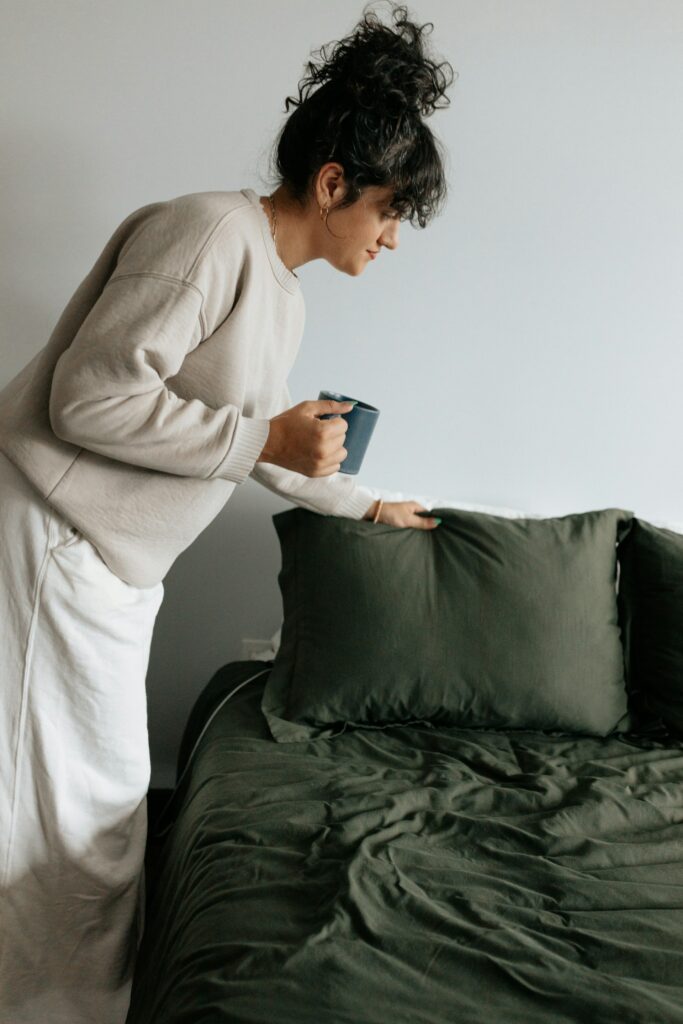
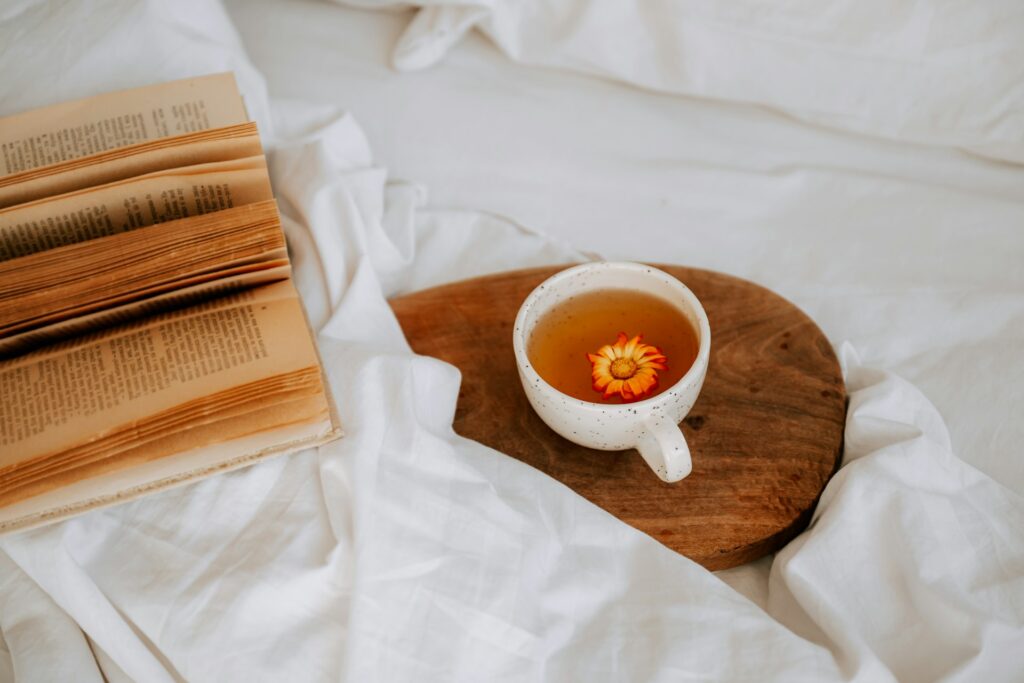
The Power Of The Tea-Making Ritual
Perhaps one of the most overlooked aspects of sleepy teas is the ritual itself. The act of preparing your bedtime brew can be just as beneficial as the herbs within it. This therapeutic process involves multiple senses and mindful actions:
The whistle of the kettle, the gentle unfurling of tea leaves, the rising steam carrying delicate aromas—these sensory experiences create a powerful transition between the busyness of day and the stillness of night. Neuroscientists suggest that such consistent pre-sleep routines help regulate our circadian rhythms by cueing the brain that it’s time to wind down.
The Japanese concept of ‘tea meditation’ captures this idea perfectly. The deliberate, unhurried preparation becomes a form of mindfulness practice, drawing attention away from racing thoughts and into the present moment. This mental shift naturally lowers cortisol levels and promotes the production of melatonin, your body’s natural sleep hormone.
Many sleep specialists now recommend establishing consistent bedtime rituals precisely because they create both psychological and physiological readiness for sleep. The tea-making process offers a perfect template: it requires just enough attention to distract from worries without demanding so much focus that it becomes stimulating.
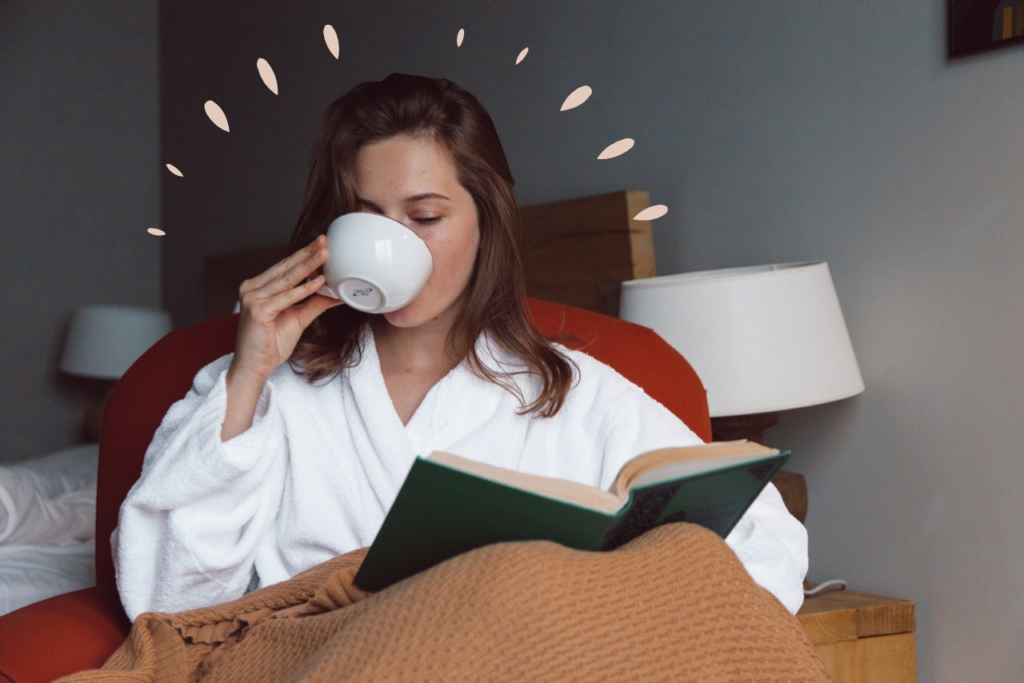

Read: A master guide to brewing Japan’s most revered green tea
The Caffeine Consideration
One clear benefit of herbal sleepy teas is what they lack: caffeine. Unlike black or green tea, herbal infusions are naturally caffeine-free, making them suitable for evening consumption without disrupting sleep cycles.
Should You Steep for Sleep?
While the evidence doesn’t suggest that sleepy teas will knock you out like a pharmaceutical sleep aid, they may offer gentle support for your natural sleep cycle, particularly when combined with good sleep hygiene practices.
For those struggling with occasional sleep difficulties, a bedtime tea ritual might be worth incorporating—with realistic expectations. The effects are likely to be subtle rather than dramatic, and individual responses may vary considerably.
If you’re dealing with persistent insomnia or serious sleep disorders, however, sleepy teas shouldn’t replace proper medical advice. They’re best viewed as a complementary approach rather than a complete solution.
The Bottom Line
Sleepy teas offer a gentle, natural approach to supporting better sleep, with minimal risk of side effects for most people. While they may not work miracles, the combination of mildly sedative herbal compounds and the relaxing ritual of a warm bedtime beverage creates a perfect partnership for preparing both body and mind for rest.
So go ahead—put the kettle on, steep your favourite blend, and savour the moment of calm before sleep. Even if the herbs don’t send you directly to dreamland, the ritual itself might be just the ticket for a smoother journey there.




